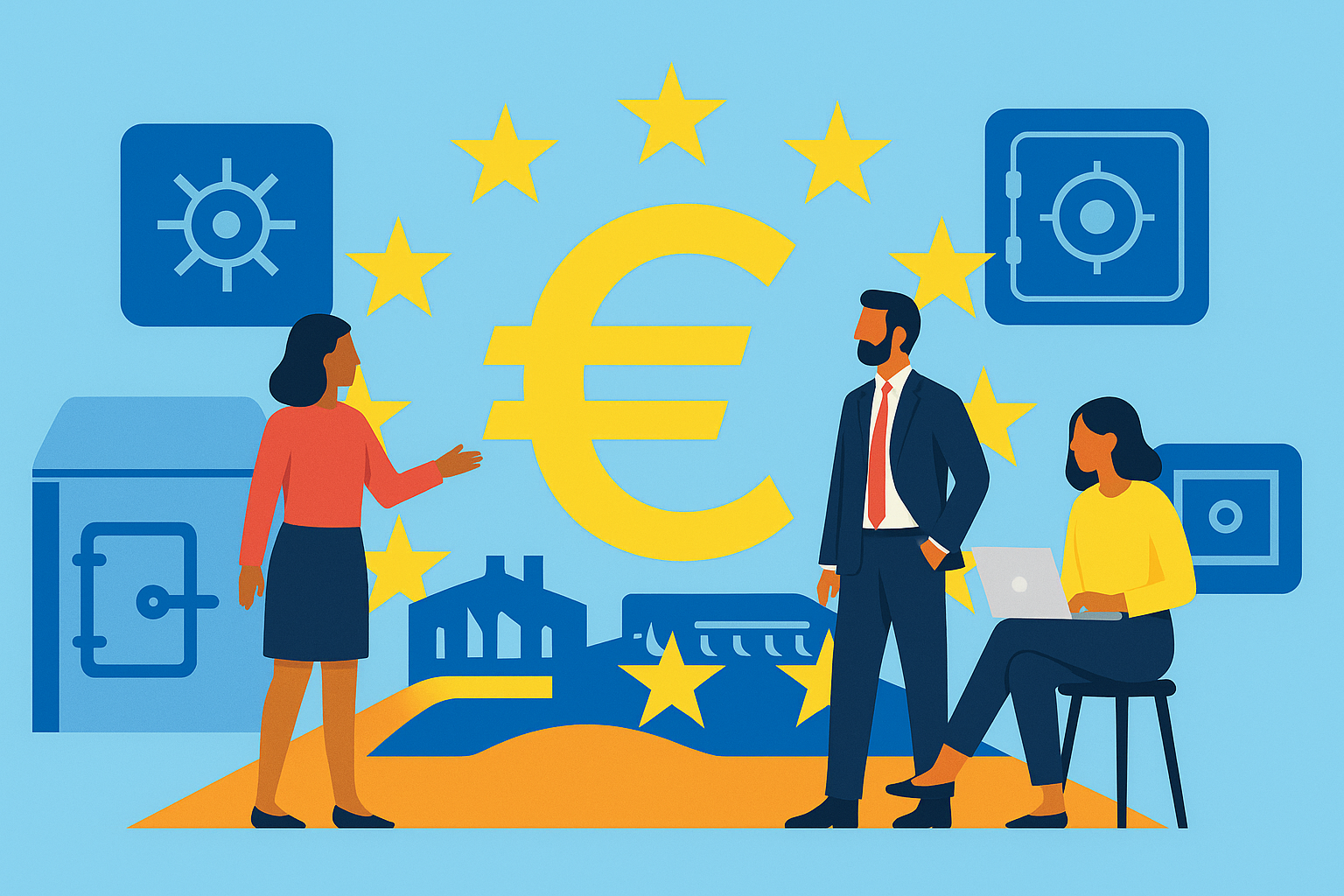EUR News
LAST UPDATE: August 2, 2025
Impact of US tariffs varies across European Union
AFP reports that U.S. tariffs (starting Aug 1) of 15% on EU imports impact member states unevenly—Germany faces largest exposure due to auto, machinery and steel exports, while other countries see lighter direct effects (NAMPA, フランス24).
Insight
The heterogeneity underscores structural imbalances in EU‑U.S. trade: Germany is most vulnerable, prompting calls for mitigation while smaller exporters may escape the brunt.
European Banks Weather Stress Test That Simulates Trade Shock
A stress test of 64 major European banks shows they can withstand a severe trade-shock scenario: capital ratios dip modestly (to ~12 %), revenue gains from high rates bolster resilience, suggesting banks are robust despite global tariff risks (Bloomberg.com, news.bloombergtax.com).
Insight
The test highlights banking resilience amid escalating global tariff risks, but also suggests the importance of continued macroprudential vigilance should trade-induced recession threats deepen.
EU brands turn to obscure customs clause to soften blow of Trump’s tariffs
Facing 15% U.S. tariffs, EU fashion and cosmetics firms like L’Oréal and Moncler are leveraging the “First Sale” customs principle—calculating tariffs on low factory prices—to reduce duty burdens, though implementation is complex and audit‑risky (Reuters).
Insight
Firms are using creative legal mechanisms to offset tariff impact, illustrating business adaptability—but with compliance complexity raising risks and signaling non‑tariff avoidance strategies.
EU waits for more Trump orders on sector tariffs like cars
The EU is awaiting further executive orders from President Trump on sector-specific tariffs (e.g. automobiles). Although a 15% “reciprocal” tariff is in force, auto exemptions have yet to be implemented, leaving uncertainty for EU exporters (Reuters).
Insight
This uncertainty extends trade tensions and complicates planning for EU sectors caught between announced tariff rates and delayed exemption details.
EU court rules against environmentalists trying to block Spanish wind farms
The European Court of Justice ruled that environmental groups in Galicia did not have a valid case, rejecting claims that public consultation rights were violated. Dozens of wind farm projects worth €3 bn (2.5 GW capacity) may now resume development. (Reuters)
Insight
The decision marks a major legal win for renewable energy deployment in Spain, reinstating investor confidence and paving the way for stalled projects to move forward.
Swiss stunned by US tariff hike, seek negotiated solution
The U.S. has abruptly imposed a 39% tariff on Swiss exports—far above prior rates—prompting shock and criticism in Switzerland, especially from luxury and precision sectors. Swiss officials are seeking a negotiated resolution, pointing to Switzerland’s prior openness to U.S. imports. (Reuters)
Insight
This tariff escalation raises questions about consistency in U.S. trade policy and risks severe disruption to bilateral ties; Switzerland’s export-focused economy may have to diversify markets rapidly.
Switzerland facing higher tariff because it did not drop trade barriers, White House says
U.S. officials justified the higher 39% tariff on Swiss goods by saying Switzerland has not sufficiently reduced its trade barriers—despite Swiss claims of high market access. The tariff affects sectors including watches, machinery and chocolate. (Reuters)
Insight
The explanation frames tariffs as leverage in broader trade diplomacy, signaling that Washington may use unilateral measures absent reciprocal concessions—even from traditionally friendly trade partners.
Bosnian Serb leader Dodik vows to defy political ban, write to Trump
Bosnian Serb President Milorad Dodik vowed to ignore a six‑year political prohibition upheld by court, pledged to continue in office, seek support from Russia, and write to U.S. officials including Trump. He plans to appeal to Bosnia’s Constitutional Court. (Reuters)
Insight
Dodik’s defiance exacerbates Bosnia’s constitutional crisis and threatens the integrity of Dayton‑era institutions. His outreach to Russia and the U.S. underlines geopolitical polarization.


